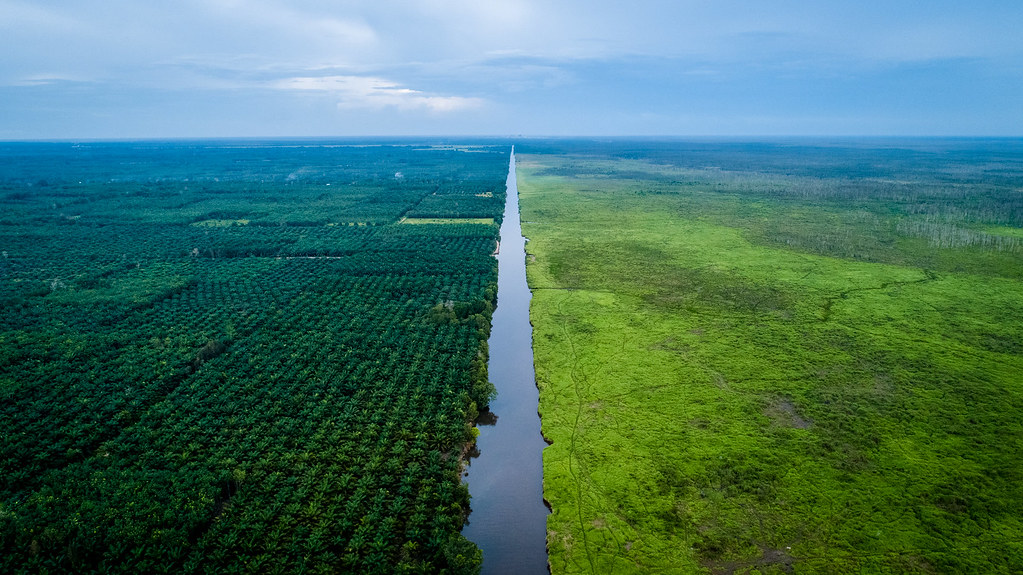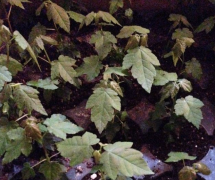Loss of 3.6 million hectares of virgin forest in 2018 for economic commodities such as beef and palm oil
According to satellite analysis by the World Resources Institute (World Resources Institute) of the Global Forest Watch Network (GFW), millions of hectares of pristine rainforest were destroyed in 2018, mainly due to beef, chocolate and palm oil, the Guardian reported.
Millions of hectares of pristine rainforest were destroyed in 2018 for the benefit of beef, chocolate and palm oil. Photo Source: Faizal Abdul Aziz/CIFOR (CC BY-NC-ND 2.0)
Scientists: deforestation trend continues to rise
Forests store large amounts of carbon and inhabit wildlife; forest protection is a key task to prevent climate change and the sixth mass extinction. But scientists say the trend of deforestation continues to rise. Although forest loss in 2018 was lower than in 2016 and 2017, dry weather caused the second worst forest fire since 2002.
Logging and ranchers in Brazil cut down virgin forests, destroying and invading undeveloped tribal lands; the Democratic Republic of the Congo and Indonesia also have high forest damage, but Indonesia is the only country where government conservation policies have effectively reduced forest loss; rainforest destruction in Ghana and Ivory Coast increased the most, mainly due to gold mining and cocoa cultivation.
Frances Seymour, a member of the World Resources Institute, said: "this is the second year that the decline in tree cover has declined since the peak in 2016, which is very encouraging, but looking back over the past 18 years, the trend of forest decline is still increasing. "
Difficult to recover for decades 3.6 million hectares of virgin forest have been destroyed
The analysis examines all tree losses in the tropics and focuses on virgin forests. Primeval forests are characterized by the fact that they are unaffected by humans, store the most carbon, and have the largest number of wildlife and species. Once the virgin forest is destroyed, it will be difficult to recover for decades.
Data show that more than 3.6 million hectares of pristine rainforest were cut down in 2018. GFW manager Weiss (Mikaela Weisse) pointed out, "most of the losses in 2018 (1.3 million hectares) occurred in the Amazon region. It is shocking that we have seen the invasion of some land that has not been affected by deforestation for many years. "
In Brazil's Ituna Itata reserve, for example, illegal logging of more than 4000 hectares occurred in the first half of 2018, more than double the total loss since 2002. The reserve has only a small number of uncontacted tribes in the world that have protected the forest for centuries.
Brazilian President Posonaro took office in January, and forest conservation efforts are weakening, but his impact will only appear in 2019.
Main causes of damage: Palm oil, agricultural and animal husbandry expansion, cocoa cultivation
In the Democratic Republic of the Congo, the loss of virgin forests in 2018 was 38 per cent higher than the 2011-2017 average. Small-scale deforestation, such as agricultural expansion and firewood collection, accounted for about 3x4 of the loss.
Palm oil plantations are the main cause of virgin forest destruction in Indonesia, but forest losses have begun to decline, the lowest since 2003. The government's policies seem to be working, but the country's climate is drier in 2019 than in the previous two years, and the drying up of land could cause the frequency of forest fires to soar again.
Forest destruction in Ghana increased by 60 per cent and Ivory Coast by 26 per cent. "the good news is that the cocoa industry has responded," said Caroline Winchester, an analyst at GFW. "the cocoa and forest initiative began in 2017, but 70 per cent of deforestation in Ghana and Ivory Coast occurs in protected areas. "
Seymour stressed that forest losses often lead directly to human tragedies. "hundreds of people are killed every year to stop mining, timber and ranchers. For moral reasons, there is no doubt that we have to find a way to prevent this from happening again. "

- Prev

The artificial propagation technology of blue belt purse fish fry has made a breakthrough, creating value and being good with the ecology.
Rotten colors, dazzling posture, swimming in the bottom of the fish, extra healing, but also make the aquarium industry has become a star industry under the trend of housing economy, physical and mental relief; according to the Food and Agriculture Organization of the United Nations (Food and Agriculture Organizatio)
- Next

Plant iron wilt yellow disease what is the relationship between plant leaf greening and iron? What is the effect of iron on plants?
Iron yellowing can affect many kinds of plants and can be frustrating for gardeners. Iron deficiency in plants leads to ugly yellow leaves and eventually death. Therefore, it is important to correct the yellowing of iron in plants. Let's look at the effect of iron on plants and how to solve it.
Related
- A course of planting techniques and methods on how to grow carrots
- How to plant the latest tulips?
- Is it better to pick tea in the morning or in the afternoon? When is the best time for tea to be picked? what is the third or fifth tea?
- Launch Yuanxiao Happy combination Haocha + Tea Yuan healthy Taste
- Penghu Tourism "Fireworks 20 Parade with You"
- 2022 West Lake Happiness holds "Digital Revitalization Voucher" and draws iphone13 and laptop.
- Banqiao Fuzhou social houses are designed to change start-up combined with police elimination to create a safe and livable environment
- The convenient measure of "mechanical weeding" in Xinbei has been abused and the Agriculture Bureau has imposed heavy penalties on the illegal land consolidation.
- Changgeng University Joins Hands with Four Memory Factories to Rescue Memory Talent Shortage
- The list of Taiwan's top 100 MVP managers is listed by the Director-General of the Farmers' Association of Sanxia District.

